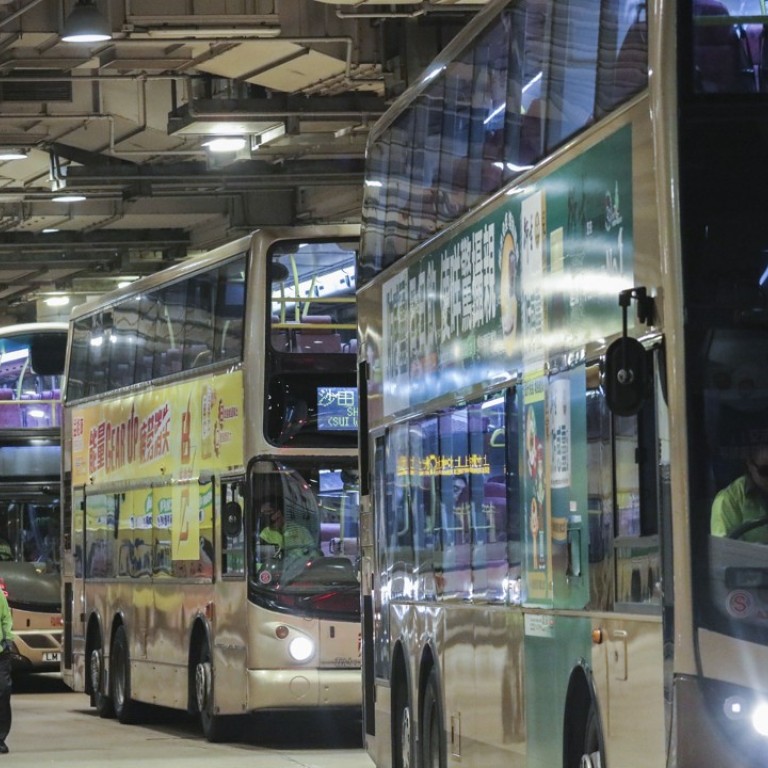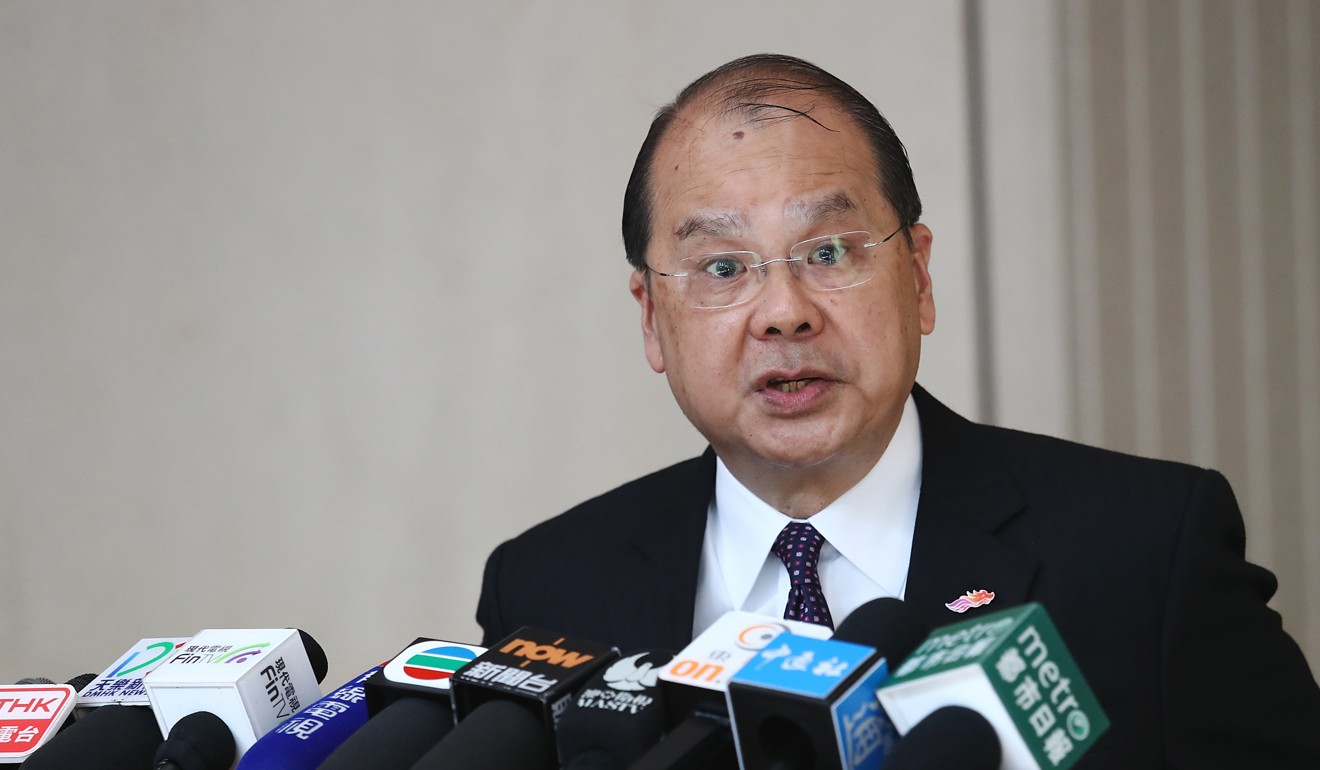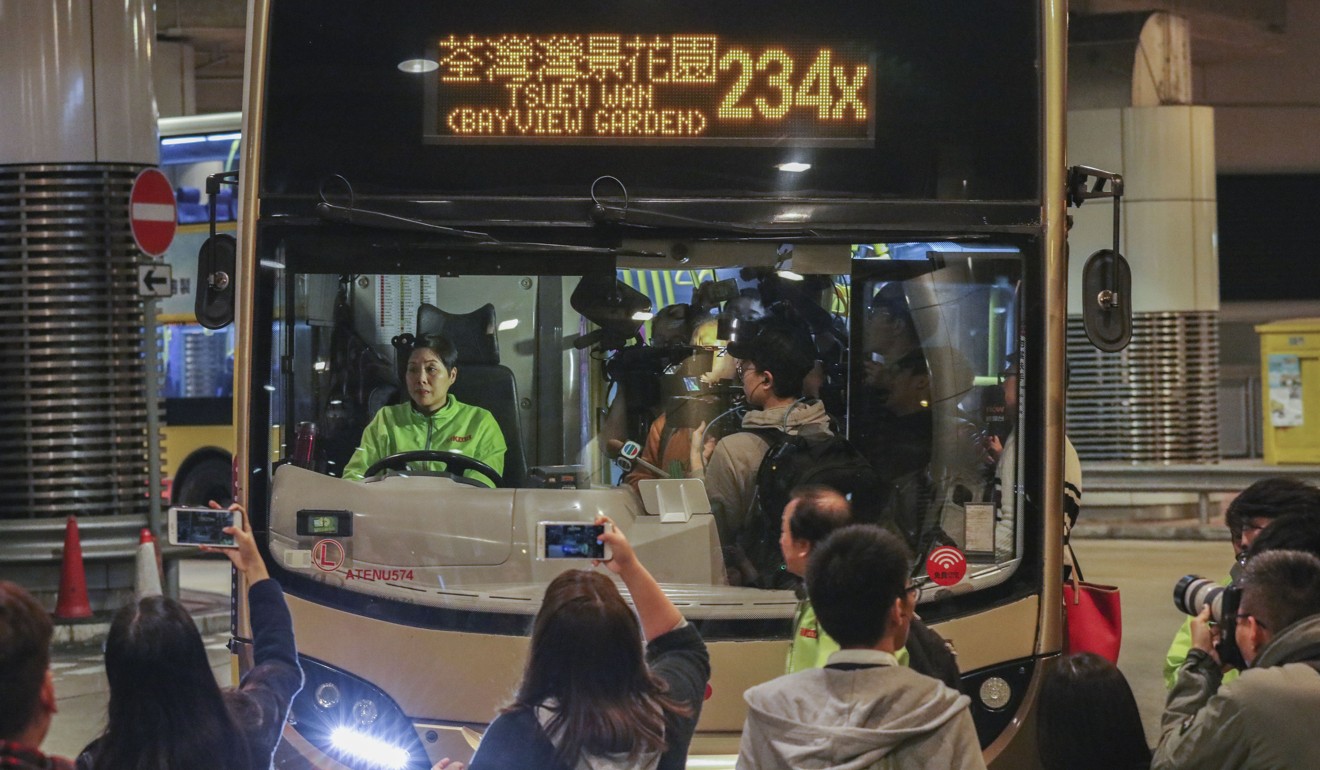
KMB drivers should settle differences with company through talks, Hong Kong’s No 2 official Matthew Cheung says
Remarks by the chief secretary follow a short-lived strike by drivers the previous night, which ended after management agreed to listen to their grievances
Hong Kong’s No 2 official on Sunday weighed in on the strike by a group of KMB bus drivers, calling on them to settle their differences with the company through talks.
Chief Secretary Matthew Cheung Kin-chung urged protesting drivers to be “rational and pragmatic” in the fight for their rights, adding that “road safety” should not be compromised by any industrial action.
Cheung also promised that the Labour Department was prepared to mediate if needed.
Road strike by KMB bus drivers’ union over pay dispute ends before it takes off
“I would like to stress that in any industrial action, whether large or small, the most important consideration should be road safety, especially passengers’ convenience and safety,” Cheung said. “One has to appreciate that there are a number of unions in KMB and some of them have agreed on the new arrangements.
“I hope people can look at the issue from a more objective point of view.”
Cheung was commenting on the strike by a group of KMB bus drivers on Saturday evening. The event, which reportedly caused no major traffic problem on most roads, was called off before midnight when the bus company agreed to meet drivers on Monday to discuss their concerns over pay.
KMB also promised that for the time being, it would not address disciplinary action against drivers involved in the strike.

A newly formed “Full-time KMB Driver Alliance”, which claimed to represent some 1,000 KMB bus drivers, organised the action because it was unhappy with a deal the company had struck with another leading staff union under the pro-establishment Federation of Trade Unions.
The alliance had said participants in the action would pull over to the side of the road at 8pm, regardless of whether passengers were on board.
The group claimed to have the support of 200 drivers, but traffic around the city remained mostly normal during the strike, which proved less disruptive than planned.
Two KMB drivers had parked their buses inside a terminus in Tsim Sha Tsui East. Both vehicles blocked the station’s lone exit. About five other buses not part of the strike were caught behind for 15 minutes.
Shorter hours on the road for 13,000 Hong Kong bus drivers after Tai Po crash but union worries about lower pay
Several pan-democratic politicians, including Jeremy Tam Man-ho from the Civic Party and localist Lau Siu-lai, showed up at the bus terminus to lend their support.
Alliance spokeswoman Yip Wai-lam said the strike was a victory and that she had no regrets, adding that she did not fear being sacked by the company.
KMB’s corporate planning and business development general manager Godwin So Wai-kei said the recent deal over new working conditions was worked out in response to staff demand. “It will not affect the annual pay adjustment exercise. We shall keep meeting unions around April and May to listen to their views before the annual pay adjustment in June.”

The new arrangements raised the starting monthly pay of drivers to about HK$15,300 (US$1,900) by including previous variable components. But the alliance is pushing for a basic salary of HK$18,000 for drivers.
Critics blamed long working hours and insufficient rest for drivers as the cause of such incidents. Unions said low salaries were failing to attract fresh talent, leading to the bus company hiring part-time drivers to ease the manpower shortage.
KMB has a staff strength of more than 8,000. There are at least five unions. With a membership of over 6,000, the biggest group is the Motor Transport Workers General Union’s KMB branch, which is affiliated to the Federation of Trade Unions.
KMB recorded 990.1 million passenger trips – a daily average of 2.71 million trips – in 2016.
Last Friday, the government announced new guidelines for bus companies that cut maximum working hours and increased rest time for drivers.

